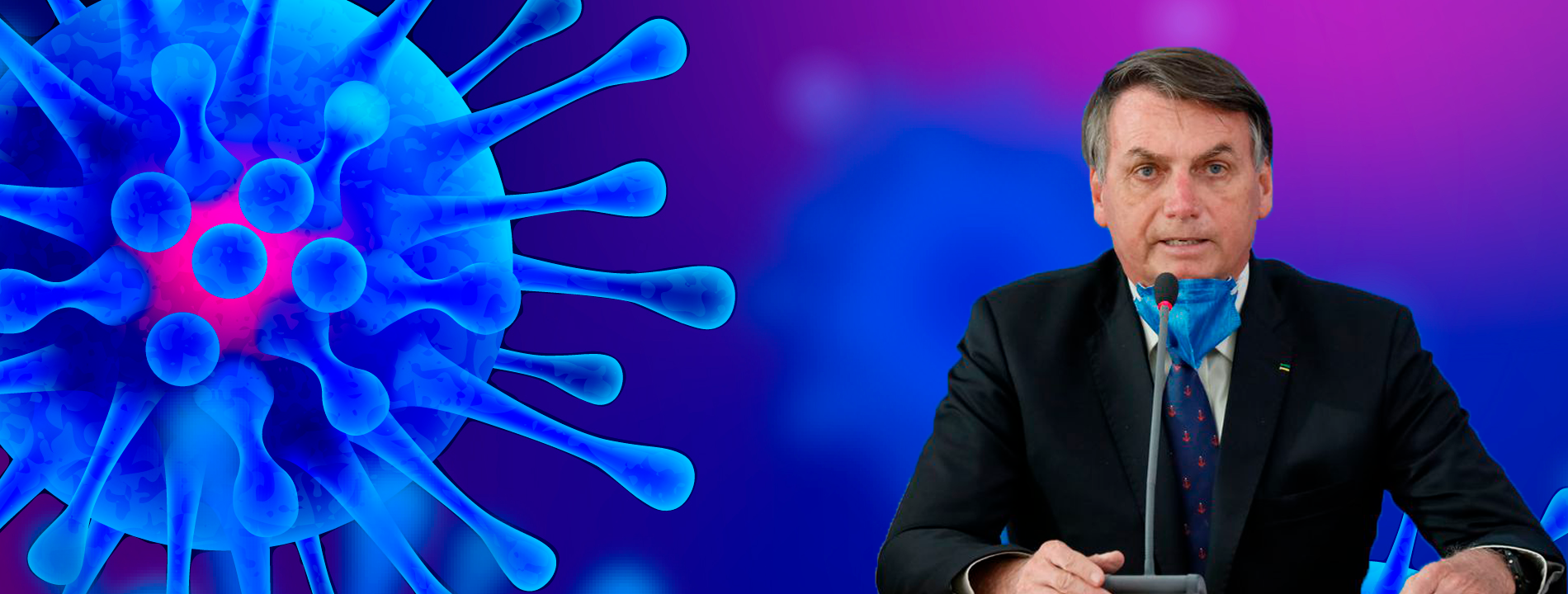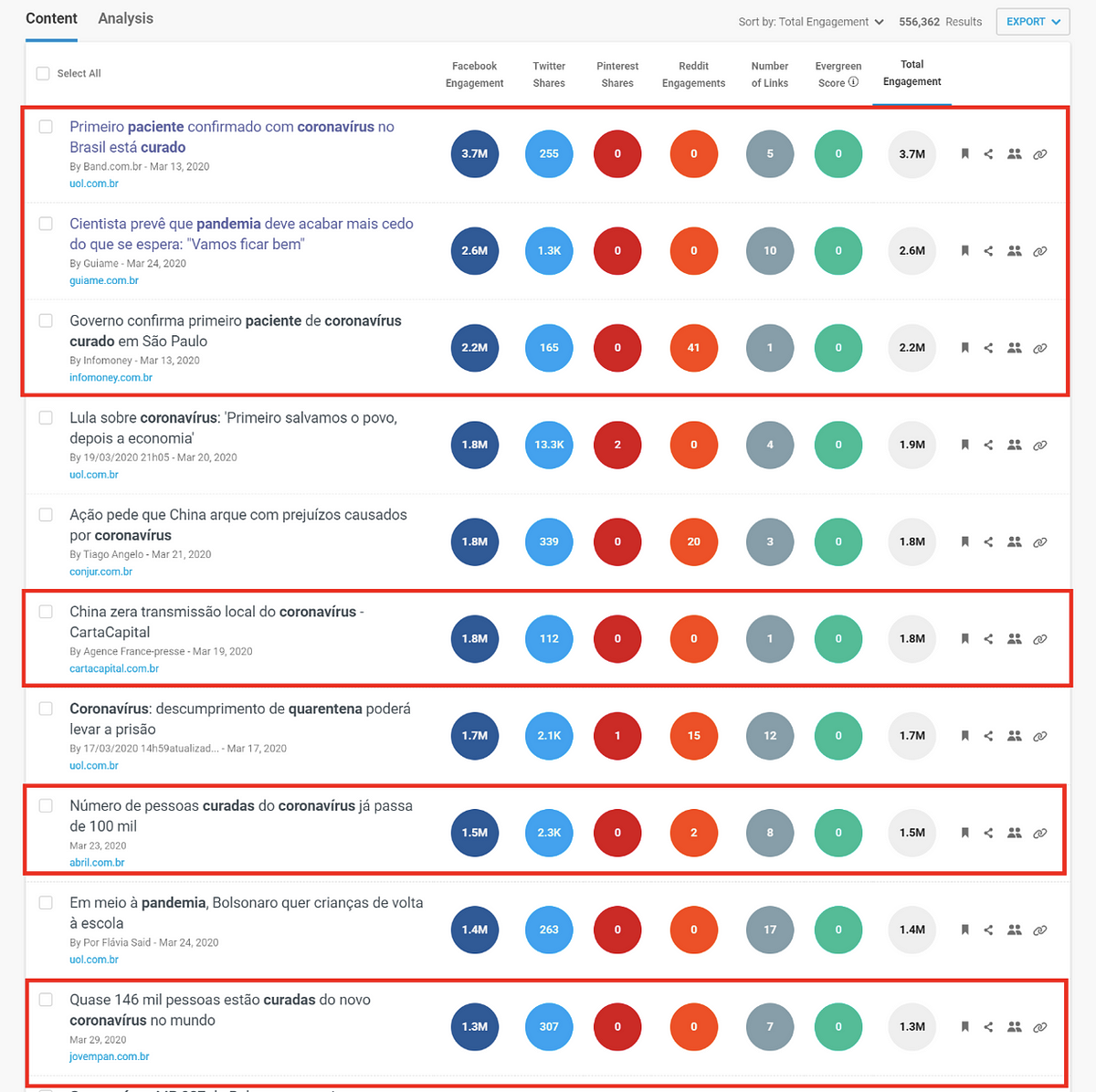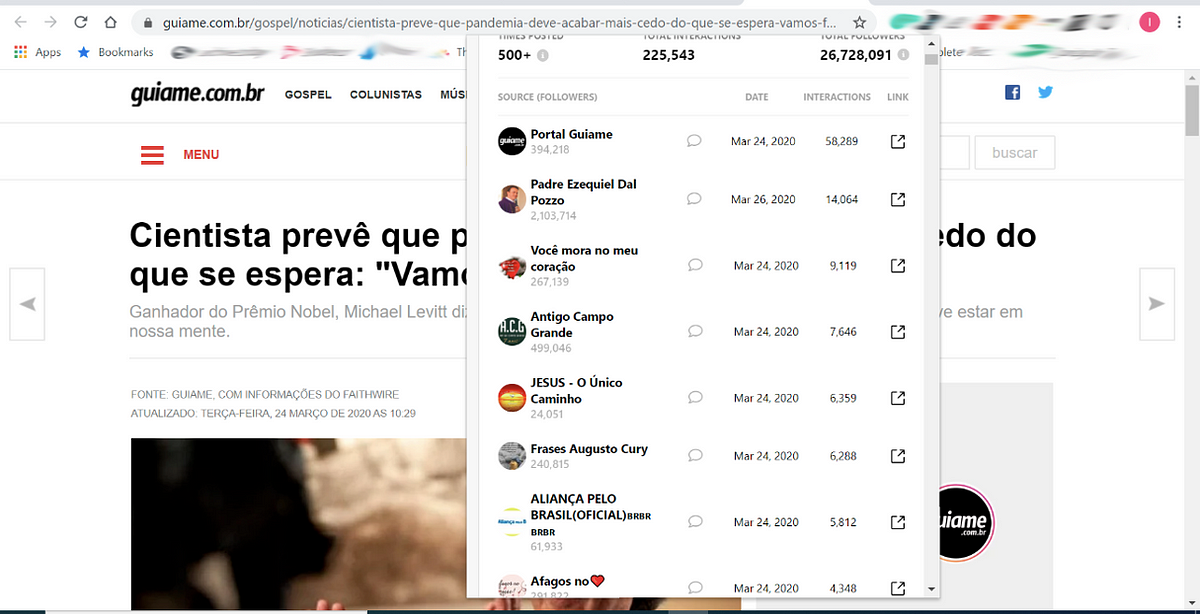Bolsonaro supporters amplify positive COVID-19 narratives on Facebook
Data indicate positive content is being
Bolsonaro supporters amplify positive COVID-19 narratives on Facebook

Data indicate positive content is being amplified by supporters of the Brazilian president, who has been dismissive of the pandemic

Articles about patients who recovered from COVID-19 and pieces arguing the pandemic will end sooner than expected are among the most engaged-with content about the pandemic on Facebook in Brazil. Rather than simply indicating that Brazilians are interacting with optimistic news about the crisis, the data suggests that articles supporting the argument made by Brazilian President Jair Bolsonaro that the disease is not that serious are getting more traction than those expressing more concern about the pandemic.
As of April 24, the country had 3,312 deaths and 51,073 confirmed cases, hitting a record number of daily COVID-related deaths one day earlier. In some cities, such as Manaus in the heart of the Amazon rainforest, mass graves have been necessary as death rates have soared. Meanwhile, some governors allied with the federal government are relaxing social isolation measures, allowing malls and other shops to open.
Bolsonaro is among just a handful of world leaders still downplaying the seriousness of COVID-19, having dismissed it as a “little flu” and “hysteria” in recent weeks. On April 16, 2020, the right-wing populist president fired his health minister, Luiz Henrique Mandetta, who supported social isolation measures. Supporters of the president and the president himself have also participated in anti-lockdown protests, following the latter’s suggestions that the economic halt caused by isolation measures will be more harmful to Brazil than the disease itself.
The Bolsonaro government, which came to power in 2019, is in a significant crisis amid the COVID-19 pandemic, facing pot-banging protests almost every day. After firing Mandetta, whose handling of the crisis had more support from the population than Bolsonaro’s actions, the president lost his popular justice minister, Sergio Moro, who resigned on April 24.
Moro resigned after Bolsonaro decided to fire the head of Brazil’s Federal Police, an action Moro claimed would constitute meddling with the autonomy of the judiciary. Moro, a former federal judge who was the symbol of the anti-corruption fight in the government, was one of the stars of Bolsonaro’s presidential campaign. His popularity rates were higher than Bolsonaro’s, and his resignation will likely impact the stability of the current government.
COVID-19 stories
Among the 10 COVID-19 articles that have that received the most engagement on Facebook in Brazil since January 1, 2020, six were “positive” articles, ranging from the number of people already recovered to how the pandemic might come to an end before expected.

Among those sharing these articles were pages and groups of Bolsonaro supporters and religious groups, which are an important part of Bolsonaro’s electoral base. The most engaged-with article, “First confirmed coronavirus patient in Brazil is cured,” was published by the TV broadcaster Band on March 12. Among the pages and groups sharing the Band article were “We are Bolsonaro,” “Bolsonaro 2022” (the year of the next elections), and #Globolixo (“Trash Globo,” in reference to TV Globo, one of the broadcasters that Bolsonaro attacks the most often).

In the number two spot was a piece published by the Christian website Guiame (“Guide me”) with the headline, “Cientista prevê que pandemia deve acabar mais cedo do que se espera: “Vamos ficar bem” (“Scientist predicts pandemic will be over sooner than expected: we will be alright”).
The article, a translation of a piece originally published by Christian news aggregator FaithWire, was shared on Facebook by other religious groups, such as the page “Padre Ezequiel dal Pozzo” and “Jesus — O Único Caminho” (“Jesus, The Only Way”). It was shared in pages and groups supporting Bolsonaro, such as “Aliança Pelo Brasil (oficial)” (“Alliance For Brazil [official]”). While no politicians administer or moderate the group, it nevertheless claims to represent the political party that Bolsonaro is trying to create. The Brazilian president left his previous party following disagreements with its leadership.

The other highly engaged-with “uplifting articles” articles had similar narratives, saying that China does not have new COVID-19 cases anymore and that over 100,000 people have recovered around the world. Even the article about China, despite being published by a left-wing outlet (Carta Capital), was shared in pro-Bolsonaro groups.
Interestingly, articles discussing chloroquine and hydroxychloroquine are not among the most engaged-with stories, despite being constantly mentioned by Bolsonaro as potential COVID-19 cures. These drugs are being used as experimental treatments in Brazil and other countries, but there is still no proof that they can cure the disease caused by the novel coronavirus. Indeed, U.S. scientists had to cut short a clinical trial with the drugs, stating that the potential of fatal side effects was too great.
The popularity of positive news about COVID-19 in Brazilian Facebook appears to be related to the political divides in the country, with uplifting or optimistic articles receiving significant attention from pro-Bolsonaro groups.
Despite the fact that these articles are not false, they do serve a narrative supported by the Brazilian president and his allies, who have downplayed the severity of the pandemic. This narrative, which is not based on objective facts, could have dire consequences for the country, which is already the nation in Latin America with the highest number of confirmed cases and COVID-related deaths.
Luiza Bandeira is a Research Associate, Latin America, with the Digital Forensic Research Lab.
Follow along for more in-depth analysis from our #DigitalSherlocks.

